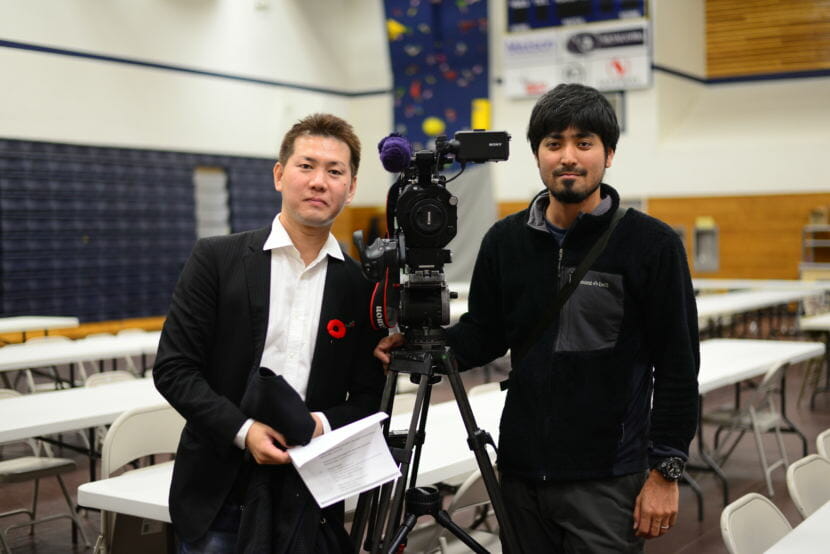
The Aleutian Islands served as the battleground for some of the bloodiest conflicts on American soil since the Civil War. But most people have never heard of the Battle of Attu, the invasion of Kiska, or even the Aleutian campaign.
Tadashi Ogawa wants to change that.
The Japanese filmmaker has produced a new documentary on World War II.
Growing up in Yokohama, Tadashi Ogawa learned a bit about the Battle of Attu in school. More than 2,300 Japanese soldiers lost their lives.
A decade ago, he stumbled upon a story in a newspaper that motivated him to dig even deeper.
The article was about a Japanese woman whose husband served on Kiska Island during WWII.
“He died there because a U.S. submarine attacked his ship,” Ogawa said. “But before that happened, he wrote a letter to his wife. He picked up a flower off Kiska Island, and he enclosed it with his letter.”
The man’s wife, Chiyo Shinoda, treasured the flower and kept it all her life.
Sixty-seven years later, when she was 98, she received another Kiska flower in the mail.
“But of course, it’s not from her husband,” Ogawa said. “This time, it was an American who was the son of (the captain of) the submarine that attacked her husband’s ship.”
Ogawa considers it a miracle — this connection between Japanese and American families who both lost loved ones in the war.
He wants to use their story of transcontinental friendship to explore the Aleutian campaign.
Last summer, Ogawa visited Kiska and Attu to shoot footage of the Kamchatka lily, the flower that started it all.
In the course of his research, he also learned about the Attuans’ captivity in Japan, which he was never taught as a child in school.
“I was pretty shocked when I knew that some Aleut people were taken as prisoners of war to Japan,” Ogawa said.
Seventy-five years after the war, Ogawa hopes his documentary will help Americans and Japanese better understand the atrocities people faced on both sides of the conflict.
“Now, many people have started talking about what happened,” Ogawa said. “I think they’re feeling like they are running out of time. If I can make a film, it’s going to be great to help them tell a story.”
